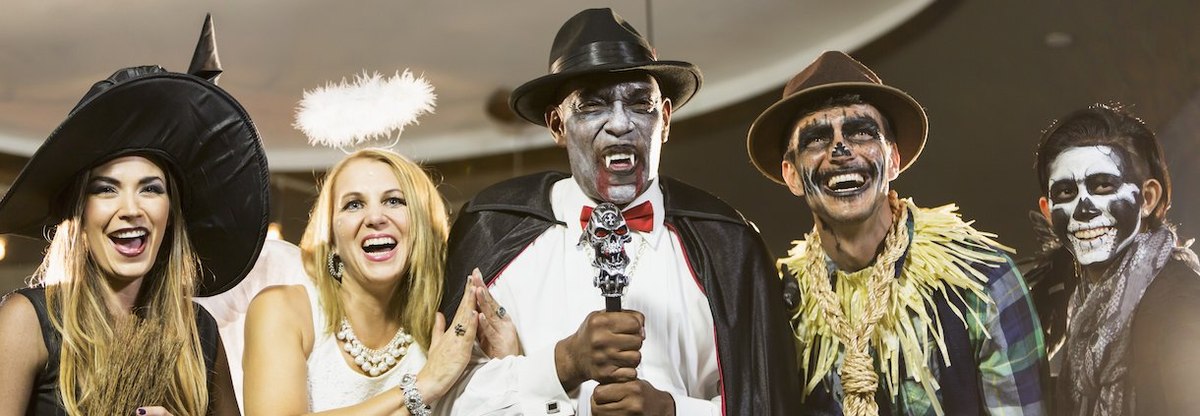Witches, vampires, and pirates are some of the most popular costumes that adults would consider wearing, a new YouGov survey conducted just before Halloween finds.
Superheroes, cowboys and cowgirls, and royalty are also among the costumes U.S. adults are most likely to say they'd consider wearing today.
But none of these costumes are universally popular. None of nearly 50 costumes YouGov asked about had more than 20% of American adults say they'd consider wearing them today. (The list of costumes included was based on open-ended responses to a question in a previous survey about the costumes American adults wore as children.)
Many of the most popular costumes for adults are ones that were also common when they were growing up. Significant shares of adults remember dressing up as cowboys or cowgirls, witches, and royalty as children, too.
There are several costumes that were popular when today's adults were kids, but which adults today say they would not consider wearing now. While 20% of adults say that as children they dressed up as cowboys or cowgirls, only 14% say they'd do so today. Compared to what they report wearing growing up, more adults say they'd consider dressing as zombies, aliens, werewolves and videogame characters.
— Carl Bialik and Taylor Orth contributed to this article
See the results for this YouGov poll
Methodology: This poll was conducted online on October 24 - 28, 2023 among 1,000 U.S. adult citizens. Respondents were selected from YouGov’s opt-in panel using sample matching. A random sample (stratified by gender, age, race, education, geographic region, and voter registration) was selected from the 2019 American Community Survey. The sample was weighted according to gender, age, race, education, 2020 election turnout and presidential vote, baseline party identification, and current voter registration status. Demographic weighting targets come from the 2019 American Community Survey. Baseline party identification is the respondent’s most recent answer given prior to November 1, 2022, and is weighted to the estimated distribution at that time (33% Democratic, 31% Republican). The margin of error for the overall sample is approximately 4%.
Image: Getty (kali9)











